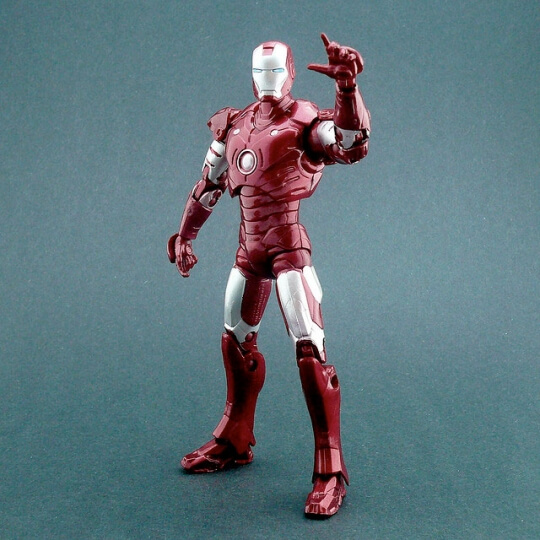News
While a far cry from Iron Man's suit, Harvard bioengineers are developing a wearable system that could potentially delay the onset of fatigue and improve the body’s resistance to injuries when carrying heavy loads. (Image by Flickr user Despotes.)
A $2.6 million contract from the Defense Advanced Research Projects Agency (DARPA) to the Wyss Institute for Biologically Inspired Engineering at Harvard will enable bioengineers to develop a smart suit that helps improve physical endurance for soldiers in the field.
The novel wearable system would potentially delay the onset of fatigue, enabling soldiers to walk longer distances, and also potentially improve the body’s resistance to injuries when carrying heavy loads.
Conor Walsh, Assistant Professor of Mechanical and Biomedical Engineering at the Harvard School of Engineering and Applied Sciences (SEAS) and Core Faculty Member at the Wyss, will lead this interdisciplinary program.
Walsh’s collaborators include Rob Wood, Gordon McKay Professor of Electrical Engineering at SEAS and Core Faculty Member at Wyss; Yong-Lae Park, Wyss Development Fellow; and George Whitesides, Woodford L. and Ann A. Flowers University Professor at Harvard University and Core Faculty Member at Wyss.
Lightweight, efficient, and nonrestrictive, the proposed suit will be made from soft wearable assistive devices that integrate several novel technologies already developed at the Wyss Institute. One is a stretchable sensor that would monitor the body’s biomechanics without the need for the typical rigid components that often interfere with motion.
Lightweight, efficient, and nonrestrictive, the proposed suit will be made from soft wearable assistive devices that integrate several Wyss technologies including stretchable sensors that monitor the body's biomechanics.
The system could potentially detect the onset of fatigue. Additionally, one of the technologies in the suit may help the wearer maintain balance by providing low-level mechanical vibrations that boost the body’s sensory functions.
The new smart suit will be designed to overcome several of the problems typically associated with current wearable systems, including their large power requirements and rigid overall structures, which restrict normal movement and can be uncomfortable.
While the DARPA project is focused on assisting and protecting soldiers in the field, the technologies being developed could have many other applications as well. For instance, similar soft-wearable devices hold the potential to increase endurance in the elderly and help improve mobility for people with physical disabilities.
Sang-bae Kim, Assistant Professor of Mechanical Engineering at the Massachusetts Institute of Technology, and Ken Holt, Associate Professor at Boston University’s College of Health and Rehabilitation Sciences, will also play key roles on the project.
Adapted from an original press release from the Wyss Institute for Biologically Inspired Engineering at Harvard University
Topics: Robotics, Electrical Engineering, Bioengineering
Cutting-edge science delivered direct to your inbox.
Join the Harvard SEAS mailing list.
Scientist Profiles
Robert J. Wood
Harry Lewis and Marlyn McGrath Professor of Engineering and Applied Sciences





